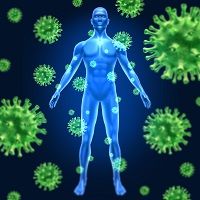Article
Researchers Successfully Jumpstart Immune System to Cure HIV in New Study
Author(s):
Because the human immune system is able to handle a large amount of human immunodeficiency (HIV) activity, researchers have posited there should be a way to stimulate it further in order to cure the disease. A collaborative team found evidence suggesting that this is possible.

Because the human immune system is able to handle a large amount of human immunodeficiency (HIV) activity, researchers have posited there should be a way to stimulate it further in order to cure the disease. A collaborative team found evidence suggesting that this is possible.
The single-participant study used the ‘kick and kill’ strategy to test the theory that re-awakening the immune system and dormant HIV in white blood cells, combined with a vaccine, could lead to a cure. Led by researchers from University College London, the University of Oxford, and the University of North Carolina at Chapel Hill, the findings were published in Clinical Infectious Disease.
“Our study shows that the immune system can be as powerful as the most potent combination drug cocktails,” co-author Ravi Gupta, MRCP, PhD, MPH, said in a news release.
The subject featured in the research was a 59-year-old man from London who had HIV and myeloma. His bone marrow, which helps control HIV, was completely removed and replaced with his own stem cells. However, this treatment damaged his immune system severely which lead to the virus to re-active and increase from less than 50 copies per milliliter to around 28,000. Two weeks after the transplant, his immune system started up again and there was a quick, substantial decrease of HIV in his blood.
He’s classified as an ‘elite controller’ which means that his immune system is more active against the disease so he can go longer without antivirals, although they’re eventually needed to prevent AIDS. The authors penned that only 0.3% of HIV patients fall under this category.
Without having the patient on any anti-HIV medication due to his myeloma, the team found the specific immune cells that attacked the virus.
“By measuring the strength of the immune system required to keep this virus under control in this rare individual, we have a better idea of the requirements for successful future treatment,” co-author Deenan Pillary, MD, said.
The investigators recognizes a call for concern when only one person is included in a study, however, the results provide a hopeful future in finding a cure for HIV.
“We need to be cautious in interpreting observations from a single subject,” said Nilu Goonetilleke, PhD, one of the authors and assistant professor at the University of North Carolina School of Medicine. “However, demonstration even from a single subject, that our immune system can rapidly control HIV-1 tells us a lot about the types of immune responses we should target and augment through vaccination.”
As bright as the future looks based on this study, Gupta estimates that it will take at least 10 years before a cure is found. The authors noted that the question still remains if this method can get rid of all of the disease in the body.
“We’re still a long way from being able to cure HIV patients, as we still need to develop and test effective vaccines, but this study takes us one step closer by showing us what type of immune responses an effective vaccine should induce,” Gupta said.



